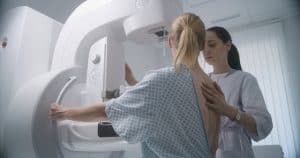
Rise in diabetes ‘alarming’
pharmafile | July 7, 2014 | News story | Sales and Marketing | NHS, diabetes, nhs scotland, type 2
NHS Scotland has spent around £230 million on diabetes and obesity drugs in the past three years, according to data obtained by the Conservatives.
The figures were £75.7 million in 2013-14, £73.2 million in 2012-13 and £74.2 million in 2011-12, with a further £6.1 million spent on obesity drugs over that time.
Diabetes UK is already calling the prevalence of the condition a ‘national health emergency’ and wants everyone aged 40 to 74 to be given an NHS health check.
It suggests that more than 700 people a day are diagnosed with type 2 diabetes in the UK, with being overweight the biggest risk factor.
The charity says 3.8 million people in the UK now have the condition and another 18 million people have what it calls ‘pre-diabetes’.
“If we continue to see people being diagnosed at this rate then the consequences will be disastrous,” says Barbara Young, the charity’s chief executive.
“As the number of people with diabetes grows, we are likely to see even more people endure devastating health complications such as amputation and kidney failure and more people die tragically young,” she continues. “It would also lead to an increase in NHS costs that would be simply unsustainable.”
Almost a quarter of a million people have diabetes in Scotland alone.
Conservative health spokesman Jackson Carlaw told the BBC: “Not every case of diabetes is related to weight, there are a range of reasons – but the fact prescriptions for both diabetes and obesity are rising at an alarming rate year-on-year cannot be ignored.”
A spokesman for the Scottish government spokesman said its diabetes action plan will be updated in the summer and demonstrates a ‘clear commitment’ to detecting and preventing the condition.
“Although the number of people with type 2 diabetes has increased in the last year, the number of prescriptions per person has remained at the same level,” he concluded. “We recognise that obesity is a serious issue and are taking a range of measures to make it easier for people to be more active, to eat less and to eat better.”
Adam Hill
Related Content

Digital mental health technologies – a valuable tool in supporting people with depression and anxiety
The potential benefits of digital mental health technology for managing depression, anxiety and stress, together …

A community-first future: which pathways will get us there?
In the final Gateway to Local Adoption article of 2025, Visions4Health caught up with Julian …

Novartis receives SMC approval for early breast cancer treatment
Novartis has announced that its treatment for early breast cancer, Kisqali (ribociclib), has received approval …






